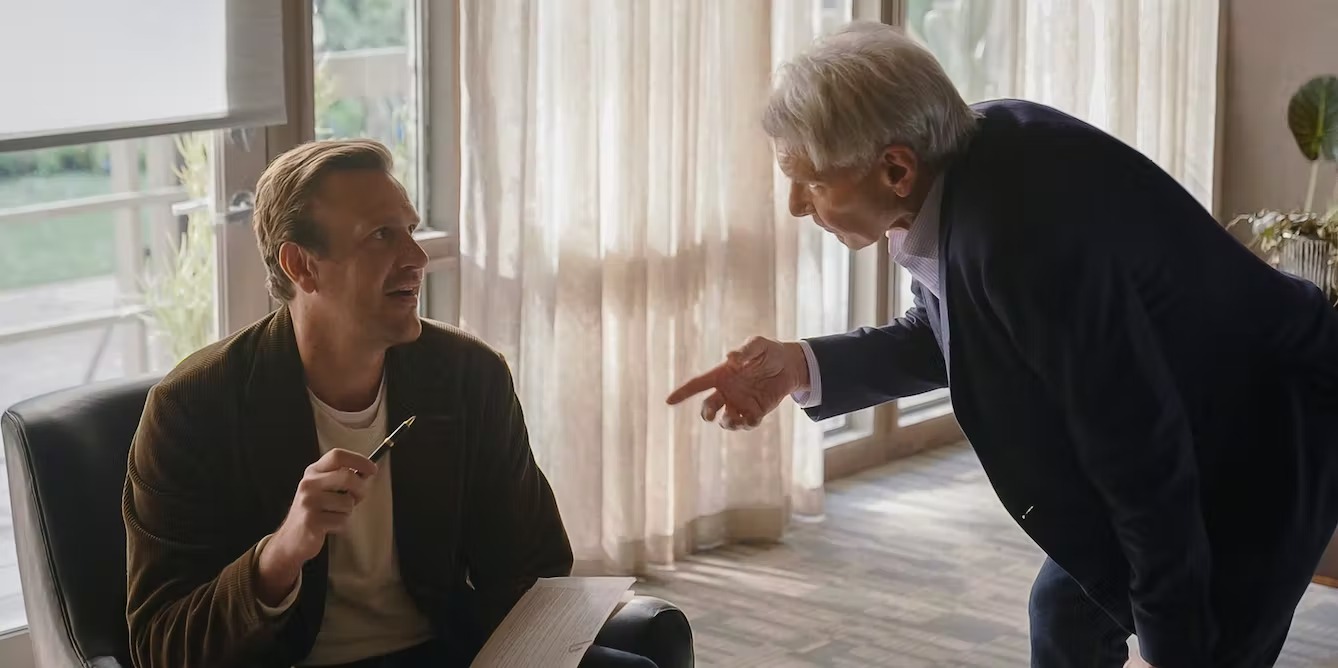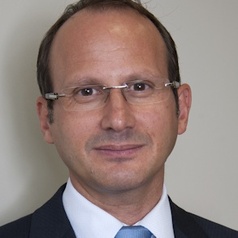Shrinking is advertised as the story of the grieving therapist Jimmy (Jason Segel) who has lost his wife and wants to try a new approach to his loss, one that involves honesty, including telling his clients exactly what he thinks of them and their problems. Humour (it is hoped), insight into human nature (presumably) and a thoughtful consideration of the role of honesty in therapy will follow.
Unfortunately, for this viewer at least, there was precious little humour, less insight and some rather bizarre assumptions about human nature in general.
As a clinical psychologist of many years’ experience, I can tell you Jimmy commits many major errors of judgement within the first five minutes of screen time. Almost nothing of Segel’s character’s behaviour bore the faintest resemblance to the experience of real life therapy – even in the rather extreme environment of Hollywood.
The central conceit, that Jimmy tells his clients the truth, is clearly not only professionally unacceptable, it isn’t even true within the logic of the show. Jimmy does not “tell them the truth”, he tells them what he is assuming, what he’s fantasising about, what he wants to say, without filtering those thoughts to meet the needs of his clients.
I am no po-faced puritan. I like farce and I love the idea of puncturing the arrogance of therapists, psychologists and psychiatrists. I would have enjoyed being outraged. I wasn’t, I was irritated.
This is, of course, a work of fiction but many of the ideas are harmful (even when you know they’re fictitious). The central concept is of course based on professional misconduct, but that isn’t even the start of it.
Professional malpractice is not funny
I have worked as a clinical psychologist for over 30 years. I was also particularly struck by the purported reasons why people might end up seeking therapy and – most especially – what might actually help. My experience, as a client and as a therapist, is that most people come to therapy in considerable emotional pain, with significant real-world problems that are affecting their mental health; people who deserve a serious responses and for whom glib answers would be harmful.
On the (relatively few) occasions that I have been asked by a client to be honest, my truthful answer has been something along the lines of:
If I were in your position, I would almost certainly find myself acting more or less like you are. My only advantage over you is that, simply because I’m not living your life and I haven’t been through what you’ve been through, I have the benefit of a little perspective.
It’s a sign of huge arrogance to assume – and to put into the mouth of an actor –the idea that a therapist can not only see “the truth” but that somehow this could help a client.
It is true that cognitive behavioural therapy (CBT, the form of therapy featured on this show) relies heavily on the ideas of “thinking errors” or “dysfunctional beliefs”, but even CBT practitioners are fully aware of the limitations of their own perspective. They know the risks they run when they make assumptions about what’s “really” going on, and serious commentators prefer to discuss the advantages of expanding the range of perspectives on an issue, rather than imposing “the truth”. Even advice is usually seen as ill-advised; Jimmy’s behaviour is anathema.
Jimmy indulges in cocaine and alcohol to excess, as well as exhibiting other significantly worrying behaviour. He turns up at work high, drunk and sleep-deprived. He makes assumptions about his clients, and bullies them into taking part in supposedly therapeutic activities that would, in reality, only serve to harm most clients. Therapy involves sustained attention on the part of the therapist, helping the client link ideas, drawing out the meaning and significance of details. Drug-addled and sleep-deprived therapists cannot function professionally.
Poor practice
If you are lucky enough to be referred to see a therapist, rest assured that even the worst-credentialed practitioners bear no relationship to Jimmy’s pre-adolescent jumble of emotions and behaviour.
There is poor practice, of course. Many of us are engaged in a deadly-serious campaign to root out abuses within the mental health system and to bring in more enlightened approaches.
What we mean by “more enlightened” is moving away from the idea that people are distressed as a result of “disorders” that can be treated with the help of medication or, indeed, through the input of therapists who somehow (despite their own failings) can offer insights and advice unavailable to their clients.
Shrinking is entirely unrelated to that effort because it is so far from reality as to be irrelevant even as a form of parody of misconduct.
Jimmy is at least as flawed as his clients. I love the idea that we’re all human, but I found little humanity in this portrayal – here, everybody is portrayed as damaged.
The therapy industry is ripe for parody. But Shrinking fails to do that. If you want to see high-quality drama about therapy, watch The Sopranos. If you want to see a parody of infuriating craziness, watch It’s Always Sunny in Philadelphia. If you want to see unprofessional antics, watch the UK version of The Office. Taste is a very personal thing; I could see what the writers of Shrinking were trying to do. But I’m afraid – for this viewer and clinical psychologist – they missed the mark.



 Trump Proposes Two-Year Shutdown of Kennedy Center Amid Ongoing Turmoil
Trump Proposes Two-Year Shutdown of Kennedy Center Amid Ongoing Turmoil  Some ‘Star Wars’ stories have already become reality
Some ‘Star Wars’ stories have already become reality  How Marvel’s Fantastic Four discovered the human in the superhuman
How Marvel’s Fantastic Four discovered the human in the superhuman  6 simple questions to tell if a ‘finfluencer’ is more flash than cash
6 simple questions to tell if a ‘finfluencer’ is more flash than cash  Google and NBCUniversal Strike Multi-Year Deal to Keep NBC Shows on YouTube TV
Google and NBCUniversal Strike Multi-Year Deal to Keep NBC Shows on YouTube TV  Gulf Sovereign Funds Unite in Paramount–Skydance Bid for Warner Bros Discovery
Gulf Sovereign Funds Unite in Paramount–Skydance Bid for Warner Bros Discovery  Trump Threatens Legal Action Against Disney’s ABC Over Jimmy Kimmel’s Return
Trump Threatens Legal Action Against Disney’s ABC Over Jimmy Kimmel’s Return  Netflix Shuts Down Boss Fight Entertainment, Developer of “Squid Game: Unleashed” Amid Gaming Strategy Shift
Netflix Shuts Down Boss Fight Entertainment, Developer of “Squid Game: Unleashed” Amid Gaming Strategy Shift  Trump to Pardon Reality Stars Todd and Julie Chrisley After Tax Fraud Conviction
Trump to Pardon Reality Stars Todd and Julie Chrisley After Tax Fraud Conviction  Disney Investors Demand Records Over Jimmy Kimmel Suspension Controversy
Disney Investors Demand Records Over Jimmy Kimmel Suspension Controversy  Trump Slams Super Bowl Halftime Show Featuring Bad Bunny
Trump Slams Super Bowl Halftime Show Featuring Bad Bunny  George Clooney Criticizes Trump’s Tariff Threat, Calls for Film Tax Incentives
George Clooney Criticizes Trump’s Tariff Threat, Calls for Film Tax Incentives  FCC Chair Brendan Carr to Face Senate Oversight After Controversy Over Jimmy Kimmel Show
FCC Chair Brendan Carr to Face Senate Oversight After Controversy Over Jimmy Kimmel Show  Pulp are back and more wistfully Britpop than before
Pulp are back and more wistfully Britpop than before  Trump Signals He May Influence Netflix–Warner Bros Merger Decision
Trump Signals He May Influence Netflix–Warner Bros Merger Decision 
































